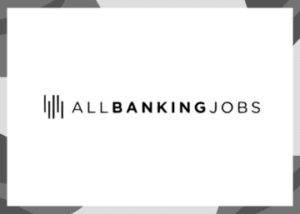With Donald Trump back in office, a fresh wave of deregulation in the banking sector is anticipated. His administration’s focus on easing financial restrictions and promoting a freer banking environment aims to stimulate economic growth and enhance the competitiveness of U.S. financial institutions. For future bankers, this deregulated landscape presents unique challenges and opportunities that demand a distinct set of skills to navigate successfully. In this blog, we’ll explore the specific skills and knowledge areas that future banking professionals will need to thrive in a Trump-led, deregulated economy.
1. Risk Management and Assessment Skills
In a deregulated economy, banks have more freedom to take on larger and more complex investments. While this flexibility creates growth opportunities, it also increases risk exposure. Future bankers who can skillfully assess, manage, and mitigate risks will be in high demand. Understanding credit risk, market risk, and operational risk is essential in helping banks make informed, balanced decisions.
Key Skills for Future Bankers:
- Proficiency in risk modeling and scenario analysis to predict potential financial outcomes.
- Knowledge of regulatory compliance and the ability to foresee how reduced regulations might impact risk.
- Attention to detail and analytical skills for evaluating risks associated with new financial products, loans, and investment opportunities.
2. Adaptability in Compliance and Regulatory Understanding
While deregulation may relax some financial restrictions, banks must still operate within certain boundaries to maintain stability and public trust. Future bankers will need to stay updated on changing regulatory landscapes, especially as state and international regulations may remain stringent even if federal guidelines ease. Professionals who understand the nuances of both domestic and global regulations will be an asset to institutions navigating this evolving environment.
Key Skills for Future Bankers:
- Strong foundational knowledge of U.S. and international banking regulations.
- Ability to adapt compliance practices in response to shifting rules.
- Communication skills to relay regulatory updates effectively to clients and internal stakeholders.
3. Data Analysis and Financial Modeling Expertise
A deregulated economy invites innovation and strategic growth. Banks are expected to invest in new products, expand lending options, and explore mergers and acquisitions. To evaluate the profitability and feasibility of these ventures, future bankers must possess strong data analysis and financial modeling skills. These competencies will enable professionals to create accurate projections and assess the impact of deregulated policies on their institution’s financial performance.
Key Skills for Future Bankers:
- Proficiency in data analysis tools and financial modeling software like Python, Excel, or SQL.
- Ability to interpret financial data and draw actionable insights.
- Forecasting skills to predict market trends and inform strategic decisions.
4. Customer Relationship and Advisory Skills
As banks expand services and experiment with new financial products, customer relationship management will be a priority. Future bankers who can serve as trusted advisors—helping clients understand and leverage new offerings in a deregulated setting—will play a key role. Building strong client relationships and effectively communicating the benefits and risks of financial products is crucial in fostering customer loyalty and satisfaction.
Key Skills for Future Bankers:
- Strong communication and interpersonal skills for client interactions.
- Knowledge of the bank’s products and services to provide informed recommendations.
- Problem-solving skills to address client concerns and tailor financial solutions to individual needs.
5. Technological Proficiency and Digital Innovation
In a rapidly evolving financial world, technology is central to operational efficiency, risk management, and customer service. Future bankers who understand the applications of financial technology (fintech) in banking will be well-equipped to contribute to their institution’s digital transformation. Familiarity with AI, data science, and blockchain technology can set candidates apart as banks increasingly rely on digital solutions to drive growth and manage risks.
Key Skills for Future Bankers:
- Knowledge of fintech trends and their potential applications in banking.
- Proficiency in digital banking platforms and data analytics.
- Understanding of cybersecurity practices, as increased digitalization raises security needs.
6. Mergers, Acquisitions, and Corporate Strategy Insight
Deregulation can make mergers, acquisitions, and corporate growth more feasible for banks. Future bankers with an understanding of corporate finance and M&A processes will be valuable as banks consider expanding or diversifying their portfolios. Professionals skilled in this area will help evaluate potential acquisition targets, assess strategic partnerships, and guide institutions through the financial and regulatory complexities of growth.
Key Skills for Future Bankers:
- Experience in financial analysis and valuation techniques.
- Knowledge of corporate finance principles and M&A strategy.
- Strategic thinking and big-picture vision to evaluate potential growth opportunities.
7. Ethical Awareness and Decision-Making
With fewer restrictions, banks may face increased scrutiny regarding the ethical implications of their actions. Future bankers who prioritize ethical practices and maintain transparency will help build public trust. This focus on integrity will be especially relevant in a Trump-led deregulated economy, where public perception and accountability remain crucial to a bank’s reputation.
Key Skills for Future Bankers:
- Ethical judgment to guide financial decisions that align with both profit goals and social responsibility.
- Transparency in reporting and communications.
- Commitment to fairness, honesty, and responsibility in client and colleague interactions.
8. Innovation and Entrepreneurial Mindset
A deregulated economy encourages innovation in financial products, lending practices, and service models. Future bankers who approach challenges with an entrepreneurial mindset will be positioned to succeed in this flexible environment. Whether it’s devising new financial products or identifying untapped markets, bankers with a proactive, creative approach will be key contributors to their institution’s growth and adaptation.
Key Skills for Future Bankers:
- Creative problem-solving to develop innovative financial solutions.
- Entrepreneurial thinking to identify and act on new market opportunities.
- Initiative and proactivity in driving strategic projects and operational improvements.
Conclusion
A Trump-led, deregulated economy brings fresh challenges and opportunities to the banking sector. For aspiring and current banking professionals, it’s essential to develop a well-rounded skill set that balances technical expertise, regulatory knowledge, and ethical judgment. Mastering risk management, data analysis, client relations, and digital innovation will position future bankers to thrive as they navigate this evolving landscape.
If you’re interested in building a successful banking career in this dynamic environment, All Banking Jobs offers a wealth of opportunities that match your skill set with the demands of a deregulated economy. With the right skills and a proactive approach, you can not only adapt to these changes but also play a significant role in shaping the future of banking.






